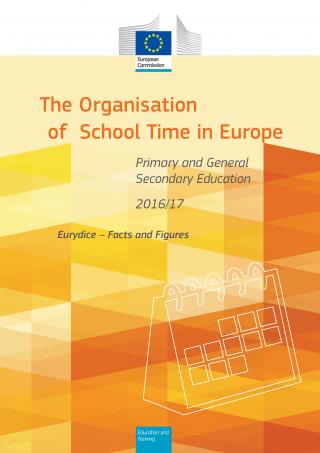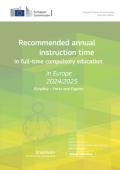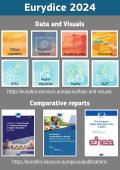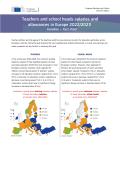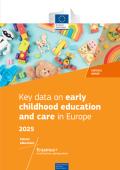The Organisation of School Time in Europe. Primary and General Secondary Education – 2017/18
Full version EN
The school calendar contains national data on the length of the school year, the start and the end dates of each school year, the timing and length of school holidays and the number of school days. It covers both primary and general secondary education and key points are illustrated by comparative figures. The information is available for 37 countries.

